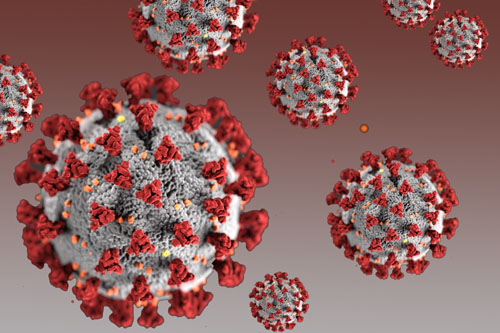by WorldTribune Staff, May 6, 2020
Researchers in Arizona have discovered a new mutation in COVID-19 that mirrors a change that occurred as the 2003 SARS virus began to weaken.
 Lead study author Dr. Efrem Lim, an assistant professor at Arizona State University’s Biodesign Institute, and his team used a new technology called next-generation sequencing to rapidly read through all 30,000 chemical letters of the SARS-CoV-2 genome, or genetic code.
Lead study author Dr. Efrem Lim, an assistant professor at Arizona State University’s Biodesign Institute, and his team used a new technology called next-generation sequencing to rapidly read through all 30,000 chemical letters of the SARS-CoV-2 genome, or genetic code.
Researchers said the technology helps researchers determine how the virus is spreading, mutating and adapting over time.
Out of the 382 nasal swab samples the researchers examined from coronavirus patients in Arizona, a single sample was missing a significant chunk of its genome. Eighty-one of the letters were permanently deleted, according to the new study published in the Journal of Virology.
“One of the reasons why this mutation is of interest is because it mirrors a large deletion that arose in the 2003 SARS outbreak,” Lim said in a statement.
During the middle and late phases of the 2003 SARS epidemic, the virus accumulated mutations that lessened its strength, according to the researchers.
“Where the deletion occurs in the genome is pretty meaningful because it’s a known immune protein which means it counteracts the host’s antiviral response,” Lim told the Daily Mail.
A weakened virus that causes less severe symptoms may get a leg up if it is able to spread efficiently through populations by people who don’t know they are infected, the researchers said.
“One sample is the convincing thing we need to say ‘Look at this,’ meaning that if more coronavirus genomes are sequenced, scientists might find far more instances of this attenuated genome,” Lim said.
Intelligence Brief __________ Replace The Media
